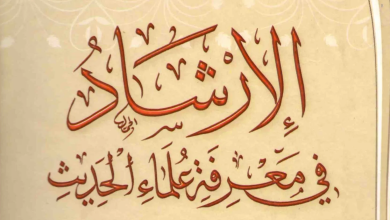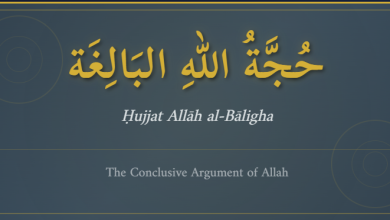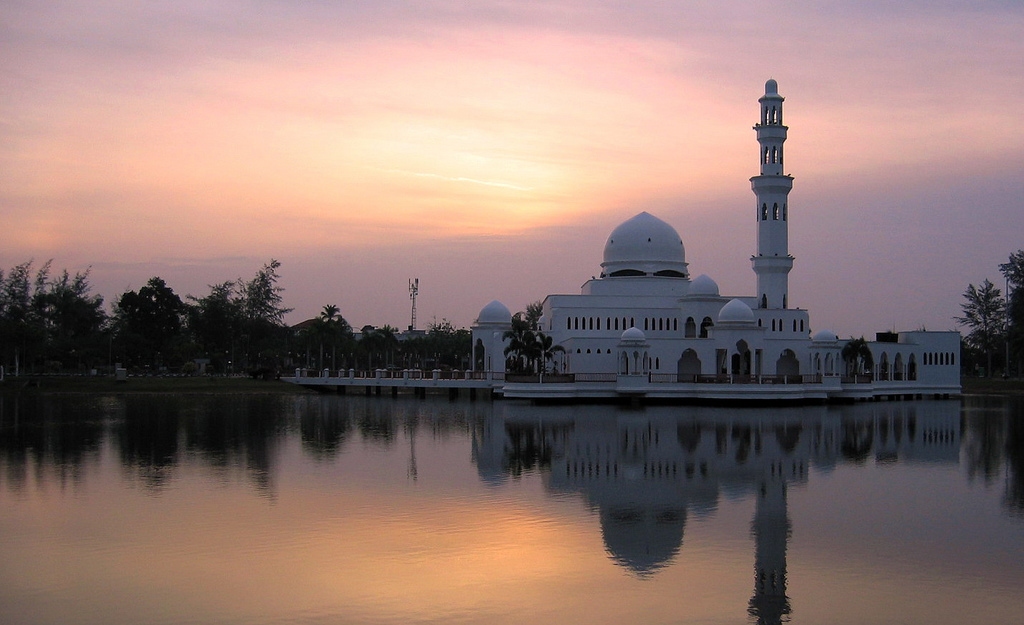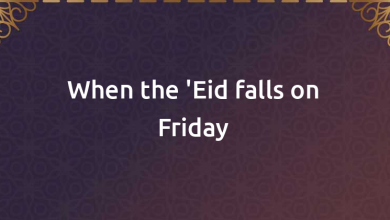The Fiqh of Eid al Fitr
The Fiqh of Eid al-Fitr
Praise be to Allah that is due from all grateful believers, a fullness of praise for all his favours: a praise that is abundantly sincere and blessed. May the blessings of Allah be upon our beloved Master Muhammad, the chosen one, the Apostle of mercy and the seal of all Prophets (peace and blessings of Allah be upon them all); and upon his descendants who are upright and pure: a blessing lasting to the Day of Judgment, like the blessing bestowed upon the Prophet Ibrahim (alaihis salam) and his descendants. May Allah be pleased with all of the Prophetic Companions (Ashab al-Kiram). Indeed, Allah is most worthy of praise and supreme glorification!
The deen of al-Islam has two major holidays, Eid al-Fitr which is celebrated at the end of fasting in the month of Ramadan and Eid al-Adha which is celebrated on the 10th of Dhu’l Hijjah. As for feasting and celebrating then this has a reference point from the Holy Qur’an (Sura al-Ma’ida, 5:114, with the explanation of Imam al-Suyuti from his Tafsir al-Jalalayn):
Isa, son of Mary, said: ‘O Allah, our Lord, send down upon us a Table from the heaven, that it shall be, that is, the day of its sending down [shall be], a celebration (Eid) for us, which we shall consecrate and honour, for the first (li-awwalinā is an inclusive substitution for lanā, ‘for us’, with the repetition of the [oblique] preposition [li-]) and the last of us, those who will come after us, and a sign from You, of Your power and my Prophethood. And provide, it, for us; You are the Best of Providers’.
Eid al-Fitr essentially constitutes a congregational prayer (salah) for those that it is obligatory on (wajib), a sermon (khutba) after the prayer, paying Sadaqatul fitr to the needy for those it is obligatory to do so before the Salah itself, as well as eating and drinking of the permitted provisions. There are other Sunna’s listed below. It is also a day of bonding between fellow believers.
Some points about the Salah
1. The Eid Prayer in congregation is wajib for males who are mature (baligh) and it consists of two rak’ats, with 6 extra takbirs[1] (according to the Hanafi school, though other madhhabs also allow an additional number like a total of 12 takbirs). There is no Adhan or Iqama for the Eid Salah or any Salah before or after it.
2. After the Eid prayer, there is a Khutba (sermon). It is necessary to listen to this Khutba, and everything disliked in the Friday Khutba is also disliked to be done here.
Sadaqatul Fitr:
To give Sadaqatul Fitr before Salatul Eid[2] is compulsory
The Sunna’s and etiquettes of the Day of Eid al-Fitr include:
1) To wake up early, in order to prepare for the injunctions of the day
2) Performing ghusl (bath)
3) To adorn oneself with one’s best clothes according to the Shari’a. White clothes are optimal for males.
4) Brush one’s teeth using a miswak if possible
5) Apply perfume (Itr). Women should not wear itr if it is likely that stranger men (ghayr-mahram) may smell it as it is condemned in hadiths
6) To eat an odd number of dates before the Eid al-Fitr prayer[3]
7) To go early to the place the Eid prayer is taking place. It is Sunna to pray Eid Salah in an open place (musalla) if possible; otherwise the confines of a masjid will suffice
8) To pray the two rak’ats of Eid Salah followed by listening to the Khutba (sermon).[4] There is no Adhan or Iqama[5] for Eid prayer. The conditions of the Khutba are similar to that for the Khutba given before Salatul Jumu’a.
9) Not to pray any optional Salah before or after the Eid Salah[6]
10) To return from the Eid prayer by a different route to the one taken there, as established by the Prophetic practice[7]
11) To walk to the place of Salah if possible
12) To give the takbirs of Eid in a soft voice while heading towards the place where Eidul Fitr Salah will be performed. The following words are pronounced:
اللَّهُ أَكْبَرُ اللَّهُ أَكْبَرُ لَا إلَهَ إلَّا اللَّهُ وَاَللَّهُ أَكْبَرُ ، اللَّهُ أَكْبَرُ وَلِلَّهِ الْحَمْدُ
13) Not to fast on Eid day[8]
Peace and blessings be upon our Master Muhammad
Abul Hasan Hussain Ahmed
Ramadan 1435AH/July 2014
[1] See the proof for this here – https://www.darultahqiq.com/proofs-for-the-hanafi-procedure-of-salat-al-id/
[2] Narrated Ibn `Umar: Allah’s Apostle (sallallahu alaihi wa sallam) has made Sadaqat-ul-Fitr obligatory, (and it was), either one Sa’ of barley or one Sa’ of dates (and its payment was obligatory) on young and old people, and on free men as well as on slaves. (Sahih al-Bukhari, 2:588, M. Khan edn)
Abdullah Ibn Abbas (Allah be pleased with him) narrates, “The Prophet (Allah bless him and give him peace) declared the payment of Sadaqah al-fitr as obligatory; it purifies the fasting person from any indecent act or speech, and is a source of feeding the poor. If one pays Sadaqah al-fitr before the salaah, it is considered an accepted charity, if he pays it after the salaah, it is considered an ordinary charity.” (Abu Dawud p.263 Dar al-kutub al-ilmiyyah. Quoted in the link given below)
See here for more details: The fiqh of Sadaqatul Fitr
[3] Narrated Anas bin Malik: Allah’s Apostle (sallallahu alaihi wa sallam) never proceeded (for the prayer) on the Day of `Eid-ul-Fitr unless he had eaten some dates. Anas also narrated: The Prophet (sallallahu alaihi wa sallam) used to eat odd number of dates. (Sahih al-Bukhari, 2:73, M. Khan edn)
[4] Narrated Abu Sa`id Al-Khudri: The Prophet (sallallahu alaihi wa sallam) used to proceed to the Musalla on the days of Eid-ul-Fitr and Eid-ul-Adha; the first thing to begin with was the prayer and after that he would stand in front of the people and the people would keep sitting in their rows. Then he would preach to them, advise them and give them orders, (i.e. Khutba). And after that if he wished to send an army for an expedition, he would do so; or if he wanted to give and order, he would do so, and then depart. The people followed this tradition till I went out with Marwan, the Governor of Medina, for the prayer of Eid-ul-Adha or Eid-ul-Fitr.
When we reached the Musalla, there was a pulpit made by Kathir bin As-Salt. Marwan wanted to get up on that pulpit before the prayer. I got hold of his clothes but he pulled them and ascended the pulpit and delivered the Khutba before the prayer. I said to him, “By Allah, you have changed (the Prophet’s tradition).” He replied, “O Abu Sa`id! Gone is that which you know.” I said, “By Allah! What I know is better than what I do not know.” Marwan said, “People do not sit to listen to our Khutba after the prayer, so I delivered the Khutba before the prayer.” (Sahih al-Bukhari, 2:76, M. Khan edn)
Narrated `Abdullah bin `Umar: Allah’s Apostle (sallallahu alaihi wa sallam) used to offer the prayer of `Eid-ul-Adha and `Eid-ul-Fitr and then deliver the Khutba after the prayer. (Sahih al-Bukhari, 2:77, M. Khan edn)
[5] This has been mentioned as part of a hadith found in Sahih al-Bukhari (7:176, M. Khan edn):
Narrated `Abdur-Rahman bin `Abis: I heard Ibn `Abbas answering a man who asked him, “Did you attend the prayer of `Eid al Adha or `Eid-al-Fitr with Allah’s Apostle?” Ibn `Abbas replied, “Yes, and had it not been for my close relationship with him, I could not have offered it.” (That was because of his young age). Ibn `Abbas further said, Allah’s Apostle went out and offered the Id prayer and then delivered the sermon.” Ibn `Abbas did not mention anything about the Adhan (the call for prayer) or the Iqama. He added, “Then the Prophet went to the women and instructed them and gave them religious advice and ordered them to give alms and I saw them reaching out (their hands to) their ears and necks (to take off the earrings and necklaces, etc.) and throwing (it) towards Bilal. Then the Prophet returned with Bilal to his house. ”
Also:
Narrated Ibn Juraij: `Ata’ said, “Jabir bin `Abdullah said, ‘The Prophet went out on the Day of `Eid-ul-Fitr and offered the prayer before delivering the Khutba, Ata told me that during the early days of Ibn Az-Zubair, Ibn `Abbas had sent a message to him telling him that the Adhan for the `Id Prayer was never pronounced (in the life time of Allah’s Apostle) and the Khutba used to be delivered after the prayer. Ata told me that Ibn `Abbas and Jabir bin `Abdullah, had said, “There was no Adhan for the prayer of `Id-ul-Fitr and `Id-ul-Aqha.” `Ata’ said, “I heard Jabir bin `Abdullah saying, ‘The Prophet stood up and started with the prayer, and after it he delivered the Khutba. When the Prophet of Allah (sallallahu alaihi wa sallam) finished (the Khutba), he went to the women and preached to them, while he was leaning on Bilal’s hand. Bilal was spreading his garment and the ladies were putting alms in it.’ “I said to Ata, “Do you think it incumbent upon an Imam to go to the women and preach to them after finishing the prayer and Khutba?” `Ata’ said, “No doubt it is incumbent on Imams to do so, and why should they not do so?” Sahih al-Bukhari (2:78, M. Khan edn)
[6] Narrated Ibn `Abbas: The Prophet (sallallahu alaihi wa sallam) went out and offered a two rak’at prayer on the Day of `Eid ul Fitr and did not offer any other prayer before or after it and at that time Bilal was accompanying him. (Sahih al-Bukhari, 2:104, M. Khan edn)
[7] Narrated Jabir bin `Abdullah: On the Day of `Eid the Prophet used to return (after offering the `Eid prayer) through a way different from that by which he went. (Sahih al-Bukhari, 2:102, M. Khan edn)
[8] Narrated Abu `Ubaid: (the slave of Ibn Azhar) I witnessed the `Eid with `Umar bin Al-Khattab who said, Allah’s Apostle has forbidden people to fast on the day on which you break fasting (the fasts of Ramadan) and the day on which you eat the meat of your sacrifices (the first day of `Eid ul Fitr and `Eid ul-Adha). (Sahih al-Bukhari, 3:211, M. Khan edn)
Narrated Abu Sa`id: The Prophet (sallallahu alaihi wa sallam) forbade the fasting of `Eid-ul-Fitr and `Eid-ul-Adha (two feast days) and also the wearing of As-Samma’ (a single garment covering the whole body), and sitting with one’s leg drawn up while being wrapped in one garment. He also forbade the prayers after the Fajr (morning) and the `Asr (afternoon) prayers. (Sahih al-Bukhari, 3:212, M. Khan edn)
Download the above article as a pdf file here
Read online:






